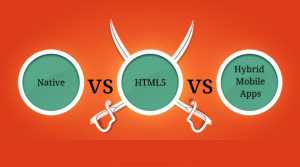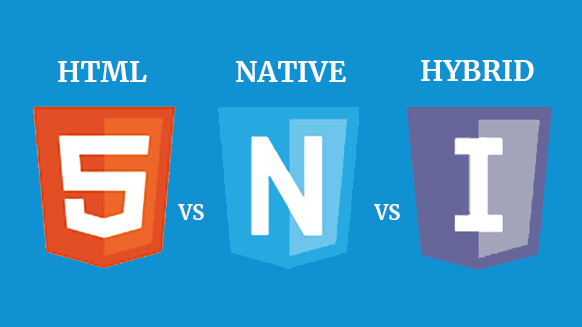There is an endless debate regarding native, HTML5 or hybrid approaches for developing mobile applications for enterprises. Each approach, or should we say platform, has its own advantages and disadvantages. The debate must not be about whether a company should use native, HTML5 or hybrid approach for its mobile apps, because choosing a platform only depends upon the nature of project. Choosing which platform to deploy requires an extensive assessment of the technology, people, strategy, and objectives that suits your needs and capacity.

Let’s find out the advantages and disadvantages of all the three platforms.
Native Apps:
• Storage and offline processing is enabled in native apps. It is important to reach out to users even when they aren’t connected to a network. Push-notifications and in-app purchases are other advantages.
• Choosing native is very costly, because each native platform requires a separate process and skill sets.
HTML5 Apps:
• These apps are cost-effective. They are easier to modify and to update or upgrade.
• HTML5 apps have poor performance rate. They are inconvenient because users have to follow URLs every time to use the app instead of it being readily available on their devices.
Hybrid Apps:
• Updating features and support for tasks is easier.
• One drawback to Hybrid is of timing. Implementing new functionality can take time and be problematic in several ways.
As explained, all the three platforms have their own perks. Avail mobile apps development services of Mobitsolutions and choose that platform which completely suits with your project.



